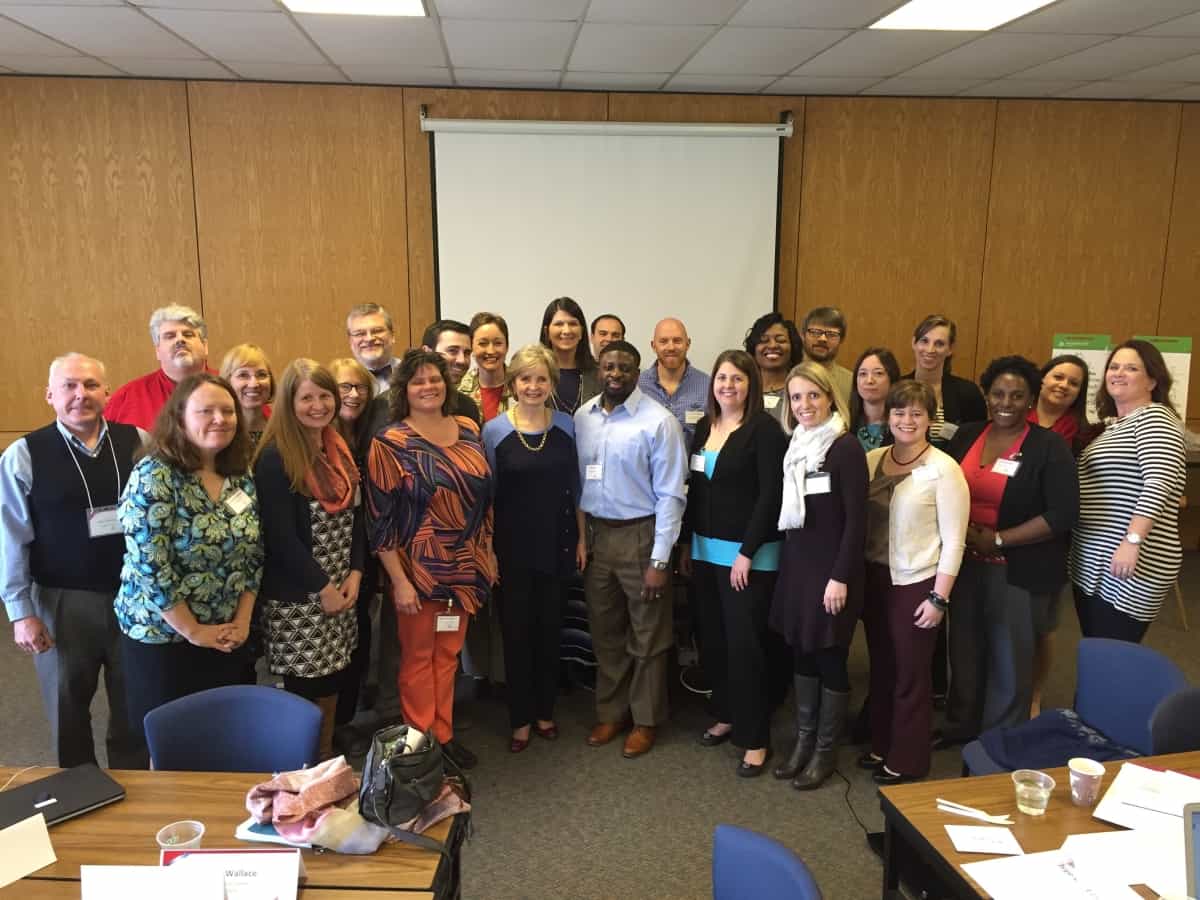

The divisive nature of politics – or the media’s narrative of the divisive nature of politics – continues to muddy progress in education in North Carolina. Polarized opinions of what should or should not happen to teachers, to students, to schools, and to districts conflict in a seemingly insurmountable fashion. And through it all, the opinions of those involved in the everyday instruction of our students are requested or asserted with little to no action. The flurry of op-eds, blog posts, survey data, internet comments, and social media dialogue create the effect of a thousand nerf guns firing at a target at one time – hitting the right points and rippling the surroundings, but ultimately falling softly to the floor.
How can we get past this polarized environment and commit to progress, however progress is best defined, for the benefit of our students?
We must commit to responding to teachers and encourage not only their voice, but their well-thought out actionable solutions to the challenges that need to be addressed.
At the third convening of the Hope Street Group North Carolina Teacher Voice Network, I was energized that several decision-makers took time out of their weekend to authentically talk with and respond to teachers. Dr. June Atkinson, State Superintendent, showed up with our Fall Data Collection report in hand – and in her discussion of NC DPI’s recommendation to drop Standard 6 from the teacher evaluation rubric referenced the usefulness of the data to their decision. Representative Craig Horn, Wake County Commissioner John Burns, Durham County School Board member Natalie Beyer, and NC DPI Consultant Cynthia Martin sat in small groups of 4-5 teachers to engage in deeper discussions on how policy in formed in the state.
These events – and the dedication of time and energy by these policymakers – are the marker of increased acknowledgment of teacher voice.
Concurrently, organizations across the state are directly or indirectly assisting teachers in formulating ideas and solutions to the everyday challenges they face – in the classroom, in their school, in their district, or within in North Carolina. Some organizations provide data and propose legislation: BEST NC is a good example. Some organizations are information conduits that spark inspired ideas or provide a forum to spread perspectives: EdNC has filled this role very successfully. Some organizations hold forums to discuss issues or connect teachers across advocacy lines: both NCAE and PENC have leadership roles here. And others convene stakeholders – and include teachers – on the larger issues facing education. The Public School Forum and its study groups are one example of that organization’s ability to dive more deeply into topics while considering the teacher perspective. The John Locke Foundation issues policy statements and provides research that teachers can evaluate and build on when formulating their opinions.
When I think about these organizations alongside one another – in addition to work of the Teacher Voice Network- – it’s difficult to deny that we are all striving for the best way to educate students while responding to teacher needs and feedback. Yet, the responsiveness of decision-makers to the data and perspectives that come out of this collective effort to include teacher voice could be – and should be – improved.
I am firmly confident that almost all of those who serve in a decision-making capacity – principals, superintendents, county commissioners, General Assembly members – have the best interests of students and teachers at heart, and act on that interest in the way that they think is best for North Carolina. What I perceive, though, is that the lack of a systematic, district or statewide way to capture the ideas and solutions of teachers leads to either the dismissal of advocacy platforms entirely or the reliance on anecdotal feedback from a few teacher experts in the purview of individual decision-makers. Moreover, the current divisive landscape has led to animosity that clouds productive and collaborative discussions. And while one could point to the Working Conditions Survey as a key tool to address this “echo chamber,” it too could be leveraged more deeply and teachers could be better informed on how their feedback was proactively used. Solutions derived from the survey could be better shared across districts to address common issues. No matter the framework, however, it will still be up to teachers to affirmatively engage and decision-makers to authentically respond.
How, then, do we reconcile the thousands of data points that exist on education in North Carolina with the constructive opinions and plans teachers have to improve their effectiveness and student outcomes? Selfishly, I believe Hope Street Group’s North Carolina Teacher Voice Network has the capacity to effectively capture the voice and solutions of teachers across the state – using existing data as a starting point – and condense this new qualitative data into common, actionable ideas that teachers can use in productive, action-oriented conversations. To me, the effectiveness of such a teacher-led communication network was demonstrated in the way Dr. Atkinson referenced a report stocked with teacher opinions as she discussed NC DPI decision-making with a room full of educators.
Let’s take the initial gesture of teacher voice – the ever-present survey – and make it actionable. Let’s reduce the need for reactionary op-eds and blog posts, because decision-makers are making a sincere effort to evaluate the opinions and solutions teachers have pro-actively presented them. Let’s have more authentic, productive meetings of teachers and policymakers. And when we commit to responding to teachers, let’s genuinely include them in the process of improving policy and addressing issues. It’s only in doing so that we can move from the room full of firing nerf guns to a place where we are efficiently removing the obstacles in the way of increased student achievement.


